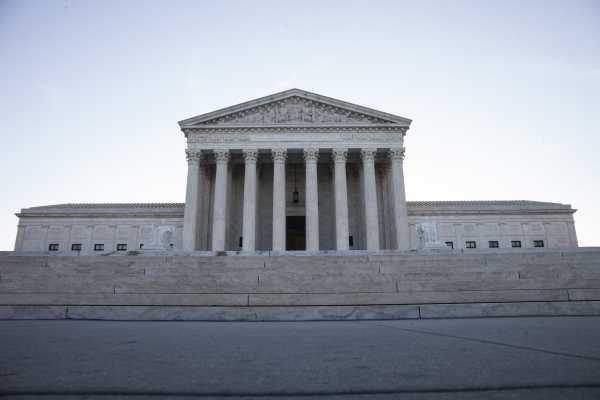
The US Supreme Court on Wednesday ruled 9-0 that the Constitution’s ban on excessive fines, written into the Eighth Amendment, applies to the states as well — a sweeping ruling that strengthens property rights and could limit controversial police seizures, such as those done through civil forfeiture, nationwide.
The case, Timbs v. Indiana, started with a lawsuit from Tyson Timbs, who pleaded guilty in Indiana to drug dealing and conspiracy to commit theft. After he pleaded guilty, the courts ordered him to forfeit a Land Rover SUV, valued at $42,000, that Timbs had bought with his dad’s life insurance policy. Timbs argued that the seizure was essentially an excessive fine, because it was more than four times the $10,000 maximum fine he could see from his drug conviction under state law.
The legal question came down to whether states are barred from imposing such excessive fines. When the Bill of Rights (the first 10 amendments in the US Constitution) was ratified, it only applied at the federal level. But the 14th Amendment, which was ratified after the Civil War, promised to extend the constitutional rights to the state level too.
The Supreme Court has ruled that most provisions of the Bill of Rights apply to states over the years, through a process called incorporation. But a few parts remain unincorporated — including, until Wednesday, the Eighth Amendment’s excessive fines clause.
A trial court and the Court of Appeals of Indiana sided with Timbs, but the Indiana Supreme Court ruled that the Eighth Amendment doesn’t apply to the states. The US Supreme Court overturned the Indiana Supreme Court’s decision.
The ruling, authored by Justice Ruth Bader Ginsburg, adds another layer of legal protection for property rights in the US.
“Exorbitant tolls undermine other constitutional liberties,” Ginsburg wrote. “Excessive fines can be used, for example, to retaliate against or chill the speech of political enemies.” She added, “Even absent a political motive, fines may be employed ‘in a measure out of accord with the penal goals of retribution and deterrence,’ for ‘fines are a source of revenue,’ while other forms of punishment ‘cost a State money.’”
Practically, the ruling could help limit the kind of seizure Timbs experienced: civil forfeiture. Under civil forfeiture laws, police can seize a person’s property without even proving the person was guilty of a crime; they just need probable cause to believe that the assets are being used as part of criminal activity, typically drug trafficking. Police can then absorb the value of this property — be it cash, cars, guns, or something else — as profit, which leads to what critics call “policing for profit.”
Over the past few years, civil forfeiture practices have come under increasing scrutiny. The Washington Post’s Michael Sallah, Robert O’Harrow, and Steven Rich uncovered several stories in which people were pulled over while driving with cash and had their money taken despite little to no proof they had committed a crime; the suspects in these cases were only able to get their property back after lengthy, costly court battles.
Another example: College student Charles Clarke was at the airport when police took his life savings of $11,000 because his bag reportedly smelled like marijuana — even though police never linked the money to an actual crime. Clarke eventually got his money back, with interest, following a lengthy court battle.
In Timbs’s case, police argued that he had used the Land Rover for heroin dealing, which, in their view, justified the seizure. The legal question came down to whether this amounted to an excessive fine covered by the Eighth Amendment. Although the Supreme Court ruled that the states are barred from imposing excessive fines, it didn’t rule on whether seizing Timbs’s Land Rover qualified — instead sending the case back down to the lower courts to apply its incorporation of the Eighth Amendment.
The hope for critics of civil forfeiture is that the Supreme Court’s decision on Wednesday will make it easier to fight such seizures — and civil forfeiture in general — in court, or perhaps deter police from the seizures to begin with. Ginsburg noted that the Supreme Court has, at the federal level, found civil forfeiture actions are covered by the excessive fines clause “when they are at least partially punitive.” With incorporation of the excessive fines clause at the state level, the same standard should now apply in the state context too.
The majority opinion incorporated the Eighth Amendment through the 14th Amendment’s due process clause, which states that “nor shall any state deprive any person of life, liberty, or property, without due process of law.”
In separate opinions, Justices Neil Gorsuch and Clarence Thomas argued that the ban on excessive fines should be incorporated through the privileges or immunities clause, which states, “No state shall make or enforce any law which shall abridge the privileges or immunities of citizens of the United States.” (Crucially, the privileges or immunities clause is specific to US citizens — not “any person,” like the 14th Amendment’s due process clause.)
For cities and states, the ruling could pose some financial challenges — since many local and state governments have come to rely on fines and civil forfeiture for income in recent years.
But, ultimately, the Supreme Court upheld a broader constitutional protection of property rights.
Sourse: vox.com






